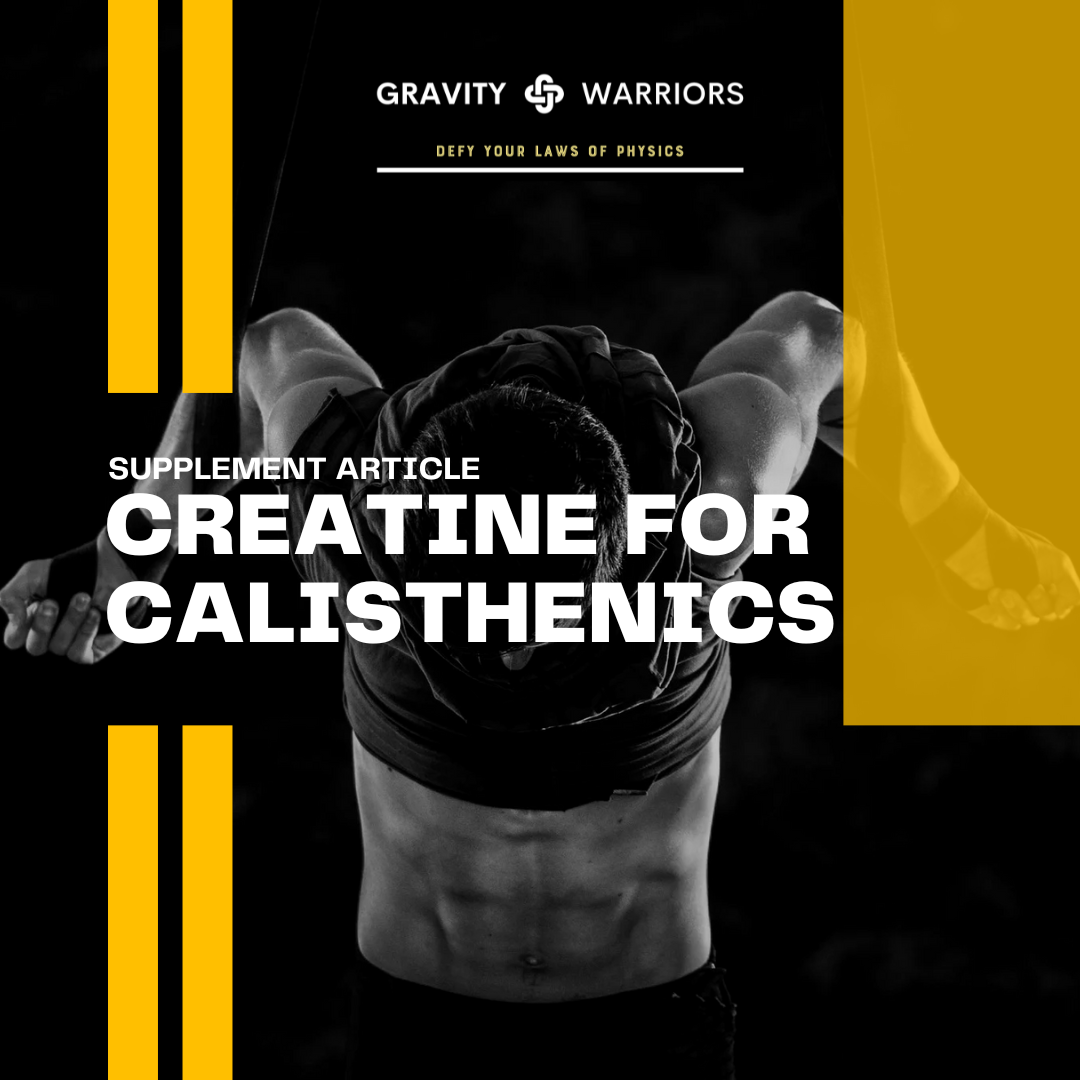Creatine for Calisthenics: Maximizing Performance for Bodyweight Athletes
Calisthenics relies on explosive strength, endurance, and muscle control to perform high-intensity, bodyweight movements. Creatine, a compound naturally synthesized in the body from amino acids like arginine, glycine, and methionine, can help calisthenics athletes enhance their performance. It’s found in foods such as red meat and fish but is most commonly taken as a supplement in the form of creatine monohydrate, available as a powder or pill.
Creatine plays a crucial role in cellular energy production, especially during short bursts of intense effort—key to many calisthenics exercises such as muscle-ups, handstand push-ups, and explosive pull-ups. Let’s explore how creatine impacts performance and why it’s a valuable tool for bodyweight training enthusiasts.
How Creatine Enhances Calisthenics Performance
The ATP-Phosphocreatine System
High-intensity calisthenics movements demand significant energy, provided by adenosine triphosphate (ATP), the body’s primary energy currency. ATP provides energy by breaking off a phosphate group. However, ATP stores are limited and deplete quickly during intense effort.
Creatine helps by replenishing ATP through the phosphocreatine (PCr) system. PCr donates a phosphate group to adenosine diphosphate (ADP) to rapidly regenerate ATP. This process is anaerobic (doesn’t require oxygen) and is critical during short, explosive calisthenics sets. For instance, in activities like one-arm pull-ups or front levers, creatine supplementation ensures a continuous energy supply, delaying fatigue and improving output.
Muscle Hydration and Growth
Creatine also increases the water content within muscle cells, promoting hydration and volumization. This effect may aid muscle recovery, support protein synthesis, and contribute to hypertrophy, which is particularly beneficial for athletes seeking to build muscle mass while maintaining functional strength for calisthenics.
Benefits of Creatine for Calisthenics Athletes
- Enhanced Explosiveness and Strength
Creatine supplementation supports high-intensity, explosive movements by replenishing ATP more efficiently. Exercises requiring bursts of power, such as plyometric push-ups or dynamic dips, benefit from this improved energy system. - Improved Muscular Endurance
While typically associated with strength, creatine also aids in sustaining muscle performance during longer sets or endurance-based calisthenics sessions. Additionally, it helps delay fatigue by increasing lactate thresholds and supporting ATP regeneration. - Faster Recovery Between Sets
Shorter recovery periods are crucial for bodyweight athletes looking to maximize training density. Creatine helps muscles recover ATP stores faster, allowing for reduced rest times between sets of challenging movements like planches or weighted pull-ups. - Muscle Preservation and Growth
By promoting cellular hydration and muscle protein synthesis, creatine can support muscle growth without adding excess body fat. As such, this is ideal for athletes focused on strength-to-weight ratio.
Best Practices for Creatine Supplementation
Choose the Right Form
Creatine monohydrate is the most researched and effective form available. It’s cost-efficient, easily absorbed, and simple to incorporate into a daily routine.
Dosage Recommendations
- Loading Phase: Take 5g of creatine monohydrate 4 times daily for 5-7 days to saturate muscle stores.
- Maintenance Phase: Continue with 3-5g daily to maintain elevated levels. Athletes with higher muscle mass may require up to 10g daily.
Timing and Consistency
Take creatine with water or a carbohydrate-rich meal for optimal absorption. Moreover, consistency is key. Muscle creatine levels decline after 4-6 weeks if supplementation stops, but skipping a day or two won’t significantly affect levels.
Considerations and Side Effects
Creatine is one of the safest, most extensively studied supplements. While water retention can lead to minor weight gain (1-2 kg), this is due to increased muscle hydration. It does not equate to fat gain.
Athletes with renal conditions or those on specific diets should consult a healthcare professional before use. Some may experience mild gastrointestinal discomfort, especially during the loading phase, but this can often be mitigated by spreading out doses.
Why Calisthenics Athletes Should Use Creatine
For calisthenics athletes, creatine offers a significant performance edge. Its ability to enhance strength, power, and recovery during bodyweight training makes it a powerful tool for advancing skills and pushing boundaries. So whether you’re aiming for explosive muscle-ups or mastering advanced static holds, creatine supplementation can help you achieve your goals.
Remember: Always pair supplementation with a balanced diet, proper hydration, and consistent training for best results.
Author: William Bees




